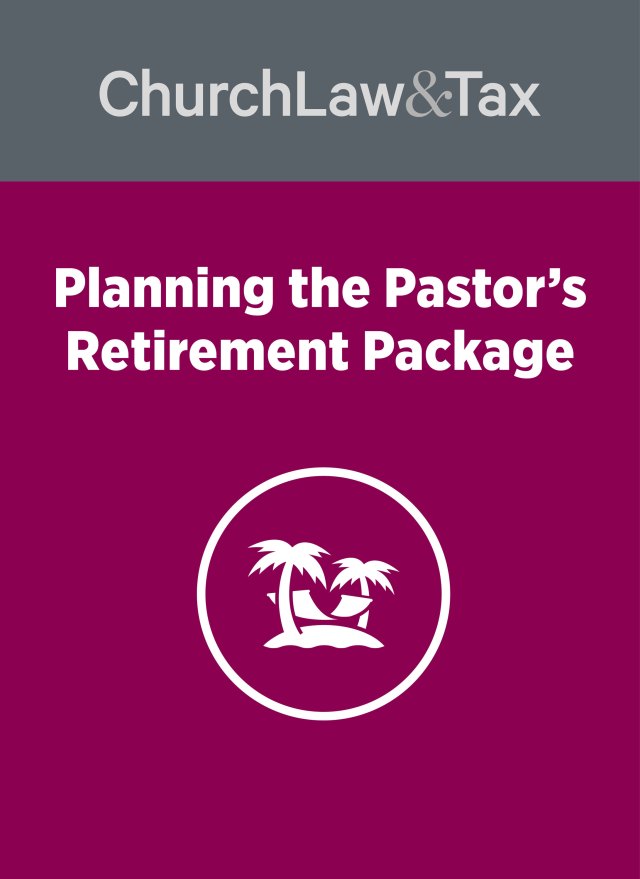Irvine v. St. John's Lutheran Church of Mound, 779 N.W.2d 101 (Minn. App. 2010)
A church in Minnesota employed a woman as its business administrator for two years. The church's employment handbook indicated that the church paid unemployment taxes and implied that its employees would receive unemployment benefits if they lost their jobs. The administrator's employment ended through no fault of her own and she applied for unemployment benefits and attempted to establish a benefit account, but was notified by the state Department of Employment and Economic Development (the "Department") that employment with a church could not be used to establish a benefit account. She appealed to the civil courts.
Under state law, the Department pays unemployment benefits to an applicant who meets certain requirements. First, the applicant must file an application for unemployment benefits and establish a benefit account. After the application is filed the Department calculates the applicant's unemployment benefit, if any, based on "all the covered employment in the base period." To establish a benefit account, however, the applicant must have earned a certain minimum dollar amount of "wage credits." Wage credits are defined as "the amount of wages paid within an applicant's base period for covered employment." Employment with a church that is operated primarily for religious purposes is "noncovered employment."
A state appeals court, in rejecting the administrator's entitlement to unemployment benefits, observed: "It is undisputed that [the employing church] met these criteria; thus [the administrator's] employment with the church is noncovered employment." The court acknowledged that a church may elect to have its employees qualify for unemployment benefits, but it found no evidence that the church had done so.
The court rejected the following four arguments made by the former administrator in support of her eligibility for unemployment benefits:
The church's employment manual
The court acknowledged that the church's employment manual stated, incorrectly, that unemployment benefits would be available to church employees separated from employment through no fault of their own. However, it rejected the former administrator's claim that the manual constituted an affirmative election of unemployment coverage: "Representations by an employer regarding eligibility for unemployment benefits are not binding on the Department."
Medicare and Social Security taxes
The former administrator argued that since the church paid Medicare and Social Security taxes, it was a "taxpaying employer" that should have to pay unemployment taxes as well. The court disagreed: "The fact that the employer and employee pay other taxes is irrelevant to whether the employer must pay unemployment taxes; instead, the latter issue is decided under the provisions of unemployment-insurance law."
Posting notices
The former administrator argued that because the state unemployment law requires employers to post and maintain a printed notice of the right to unemployment benefits, the church should have posted notices or informed its employees that they did not have the right to unemployment benefits. In rejecting this argument the court noted that "the statute contains no such requirement, and [the administrator's] argument would be more appropriately addressed to the legislature, which solely has the power to amend the law."
Equitable relief
The former administrator, citing the purpose of the unemployment law and its remedial nature, argued that she should receive benefits because she was unemployed through no fault of her own. She cited the following statement in the unemployment law: "The public good is promoted by providing workers who are unemployed through no fault of their own a temporary partial wage replacement to assist the unemployed worker to become reemployed." Once again, the court rejected this argument: "The Department will pay unemployment benefits only to an applicant who meets all of the requirements. Without having met the requirement of establishing an unemployment-benefit account, [the former administrator] cannot obtain unemployment benefits, and no liberal construction of the statute in favor of its remedial purpose or narrow construction of ineligibility requirements can allow us to reach the result she seeks …. Consequently, she cannot prevail on her argument that she should receive unemployment benefits as a matter of equity."
This case highlights the reality that most church employees will not qualify for unemployment benefits if they are laid off, even if an employee handbook erroneously indicates otherwise. Be sure to check your state law to determine whether this is the case for your church.




